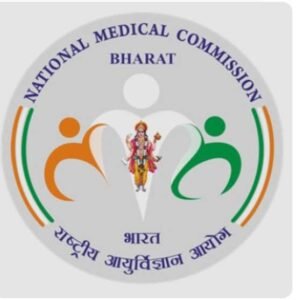
why in news?
- In the realm of healthcare governance in India, the National Medical Commission (NMC) stands as a pivotal institution tasked with regulating medical education and professionals.
- With recent directives from the Supreme Court underscoring its mandate, understanding the intricacies of the NMC and its functions becomes imperative.
- Let’s embark on a journey to explore the role, functions, composition, and significance of the NMC in shaping the medical landscape of the nation.
Understanding the National Medical Commission (NMC):
- The NMC, established under the National Medical Commission Act, 2019, signifies a paradigm shift in medical regulation, supplanting the erstwhile Medical Council of India (MCI).
- Entrusted with the responsibility of upholding standards in medical education and practice, the NMC serves as the vanguard of quality assurance and ethical conduct in the healthcare sector.
Functions of the NMC:
- Setting High Standards:
- The NMC is mandated to lay down policies and regulations aimed at maintaining high-quality standards in medical education and practice. Through meticulous oversight and regulatory frameworks, it endeavors to uphold excellence across the medical spectrum.
- Regulation of Medical Institutions:
- One of the primary functions of the NMC is to regulate medical institutions, including accreditation, recognition, and assessment of medical qualifications. By ensuring adherence to prescribed guidelines, the NMC strives to enhance the overall quality of healthcare delivery.
- Professional Ethics:
- Promoting ethical conduct among medical practitioners is a cornerstone of the NMC’s mandate. Through the formulation of codes and guidelines, it seeks to instill integrity, accountability, and compassion in the provision of healthcare services.
- Fee Regulation:
- In a bid to address concerns surrounding exorbitant fees in private medical institutions, the NMC frames guidelines for the determination of fees and charges. By advocating for transparency and affordability, it endeavors to foster accessibility to medical education.
Composition of the NMC:
- Comprising 33 members, including medical professionals, ex-officio members, and part-time members, the NMC embodies a diverse array of expertise and perspectives.
- With representation from various stakeholders, it strives to achieve consensus-driven decision-making and holistic governance.
Role of the Medical Advisory Council:
- Facilitating collaboration between the NMC and state authorities, the Medical Advisory Council serves as a conduit for dialogue and consultation.
- By soliciting inputs from states and union territories, it aids in the formulation of policies and guidelines conducive to the diverse healthcare landscape of the nation.
Recent Developments and Directives:
- The recent directive from the Supreme Court mandating the NMC to furnish details regarding the stipend status of medical colleges underscores the judiciary’s vigilance in ensuring accountability and transparency.
- Such interventions reaffirm the pivotal role of regulatory bodies in safeguarding the interests of stakeholders and fostering accountability.
Conclusion:
- As a custodian of medical standards and ethics, the National Medical Commission occupies a paramount position in India’s healthcare ecosystem.
- By upholding principles of quality, integrity, and accessibility, the NMC endeavors to steer the medical fraternity towards excellence and equity.
- As we navigate the evolving contours of healthcare governance, let us recognize the indispensable role of institutions like the NMC in shaping a healthier and more equitable future for all.
People also ask
Q1: What is the National Medical Commission (NMC)?
Ans: The National Medical Commission (NMC) is a regulatory body established under the National Medical Commission Act, 2019, replacing the Medical Council of India (MCI). It is responsible for regulating medical education and professionals in India.
Q2: What are the functions of the NMC?
Ans: The NMC lays down policies to maintain high standards in medical education and practice, regulates medical institutions, grants recognition of medical qualifications, monitors medical practice, and ensures compliance with guidelines. It also promotes professional ethics and advises on fee regulations.
Q3: How is the NMC composed?
Ans: The NMC consists of 33 members, including the Chairperson (medical professionals only), 10 ex-officio members, and 22 part-time members. The composition ensures representation from various stakeholders, including medical experts and government officials.
Q4: What is the role of the Medical Advisory Council?
Ans: The Medical Advisory Council provides a platform for states and union territories to express their views and concerns to the NMC. It advises the NMC on measures to maintain minimum standards of medical education and facilitates collaboration between the NMC and state authorities.
Thanks for sharing. I read many of your blog posts, cool, your blog is very good.
Thank you so much for your comments. Please share with your friends and family members so they can also gain some information.
Your point of view caught my eye and was very interesting. Thanks. I have a question for you.
Can you be more specific about the content of your article? After reading it, I still have some doubts. Hope you can help me.
Your article helped me a lot, is there any more related content? Thanks!